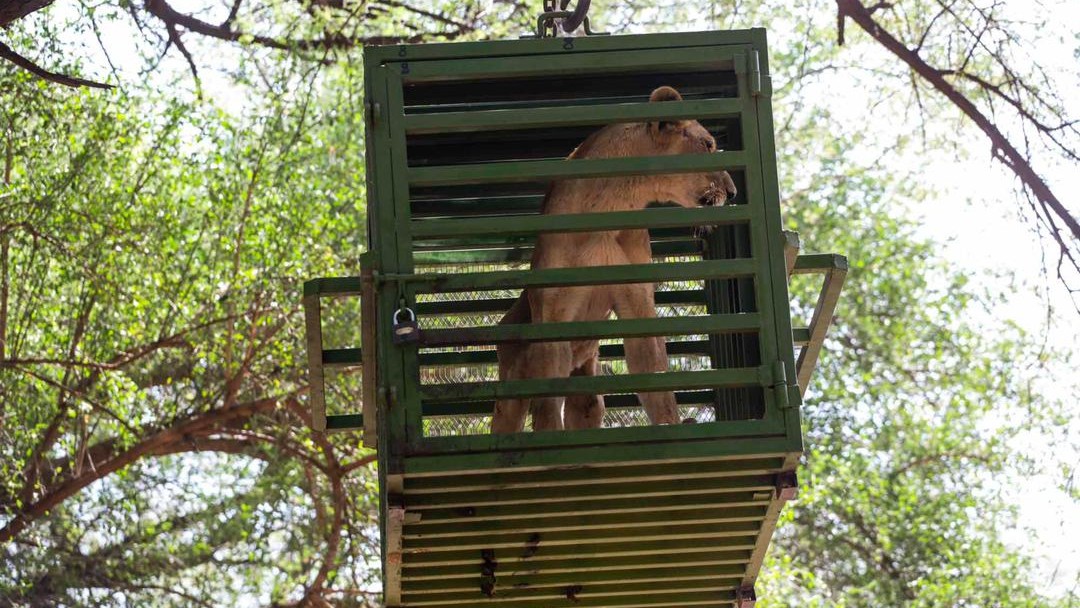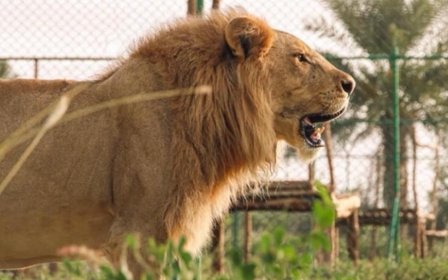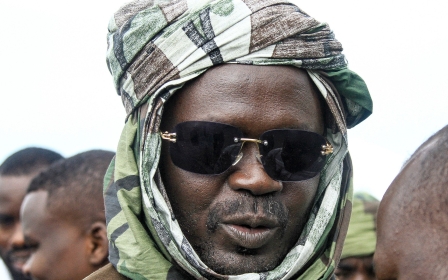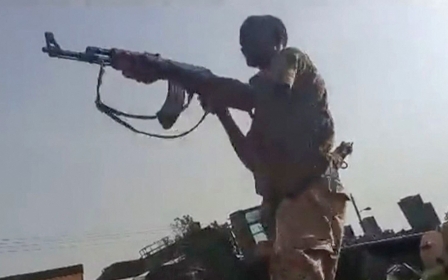Sudan: Animals evacuated to safety from zoo at heart of war
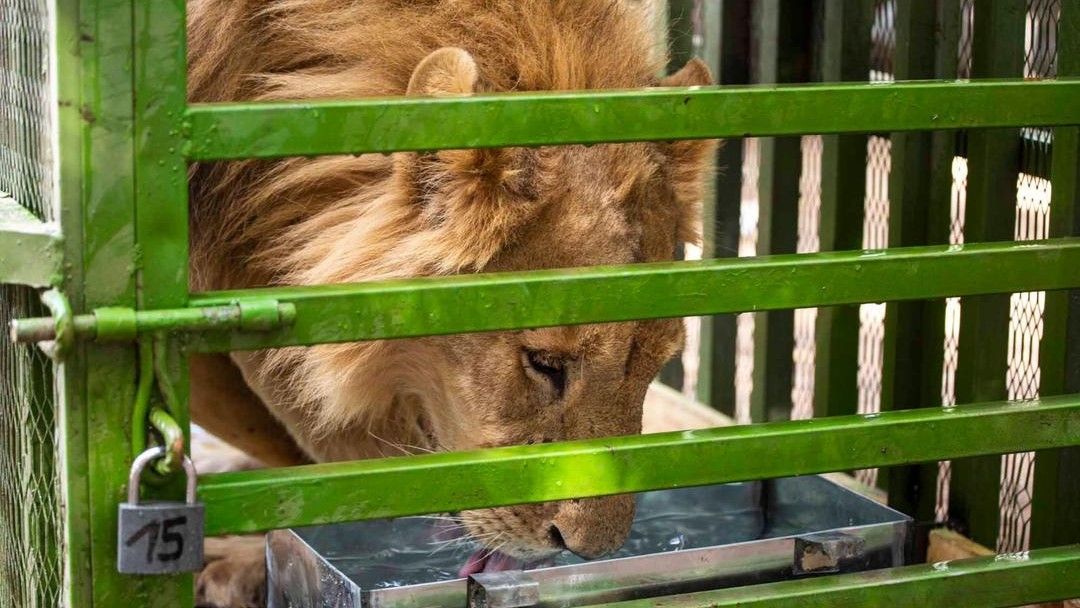
After spending almost seven months trapped in an area of heavy fighting, around 50 wild animals have been evacuated from a Sudanese animal sanctuary on the outskirts of the capital Khartoum, and moved to a safer part of the country.
In an interview with Middle East Eye, Mansour Babiker Hamid, the chief executive of Sudan Animal Rescue, said that animals including lions, hyenas, deer, exotic birds, and monkeys were transported out of the zoo on 18 November after their safe passage was guaranteed by both sides in Sudan’s war.
Working with the Austrian animal welfare group Four Paws, the staff of Sudan Animal Rescue, which is 35kms from the centre of Khartoum, took the animals to the capital, where they spent the night before travelling on to Um Barona National Park in al-Jazira state.
Hamid said that 15 lions, five hyenas, two gazelles, and 17 different types of birds were moved in the operation.
A video of the operation sent to MEE shows the animals being placed into large wooden crates, before being lifted onto the back of two trucks by crane.
New MEE newsletter: Jerusalem Dispatch
Sign up to get the latest insights and analysis on Israel-Palestine, alongside Turkey Unpacked and other MEE newsletters
“There are still some monkeys, turtles, and snakes left at the sanctuary,” Hamid said.
Both the Sudanese army and its enemy, the Rapid Support Forces (RSF) paramilitary group, assisted the animal sanctuary in its operation.
The RSF provided the crane to transport the animals’ crates, while the Sudanese Armed Forces (SAF) facilitated the safe passage of the convoy of animals until it reached al-Jazira state.
“There was complete cooperation between us and the Wildlife Protection Police until the animals were handed over to them at the park,” Hamid said.
The army and RSF, which were once the two largest elements of the Sudanese military, have been at war since 15 April. Fighting has been particularly fierce in Darfur, in western Sudan, and in and around Khartoum.
Located in an area that has hosted fierce fighting, the staff at Sudan Animal Rescue have struggled throughout the war to keep the animals in their care alive.
At times they have lost their power supply because of army air strikes, seriously disrupting the animals and the functioning of electric fences.
In July, RSF fighters broke into the sanctuary, shooting and taking away a camel and two gazelles. Hamid told MEE at the time that the fighters had broken into the zoo more than once, killing the animals for their meat.
“We have lost a large number of lions due to disease and hunger during the war,” Hamid told MEE. “The rest of the animals are in a difficult condition and some of them need special care.
“Since the war began, a lioness was hit by a bullet in her stomach and died shortly after from the injury. Leo the lion died, as well as some cubs, two other lionesses, two wild cats, and a crocodile of African origin.”
'Multiple' animal deaths
For nearly seven months, Hamid and his team searched in vain to find an organisation that would help them move the animals to a place of greater safety.
Vienna-based Four Paws stepped in to help, and two teams were established for the evacuation, one on the ground and the other dealing with communications and planning.
'Sadly, multiple lions and other animals have recently died due to disease and hunger, resorting to eating each other. The surviving animals are very thin and weak'
- Amir Khalil, vet with Four Paws
With the assistance of both sides in the war, the animals travelled by truck to Khartoum, where they spent a night in safety, before moving on to Um Barona National Park.
“Conflicts not only affect humans but also animals. Given the high-risk circumstances, our priority was to safely evacuate all the animals from Sudan Animal Rescue in Khartoum as fast as possible," said Amir Khalil, a veterinarian with Four Paws.
"This was a huge challenge for our team but we are relieved that we got nearly 50 animals out of the immediate dangers of the conflict zone.
"Sadly, multiple lions and other animals have recently died due to disease and hunger, resorting to eating each other. The surviving animals are very thin and weak, despite the best efforts of the remaining caretakers."
The evacuation of the animals is a rare piece of good news amidst the ongoing war, which has claimed many thousands of lives and displaced 6.3 million people.
Unicef says that in Darfur alone at least five million children are facing extreme deprivation of their rights and protection risks due to ongoing conflict.
Middle East Eye delivers independent and unrivalled coverage and analysis of the Middle East, North Africa and beyond. To learn more about republishing this content and the associated fees, please fill out this form. More about MEE can be found here.


